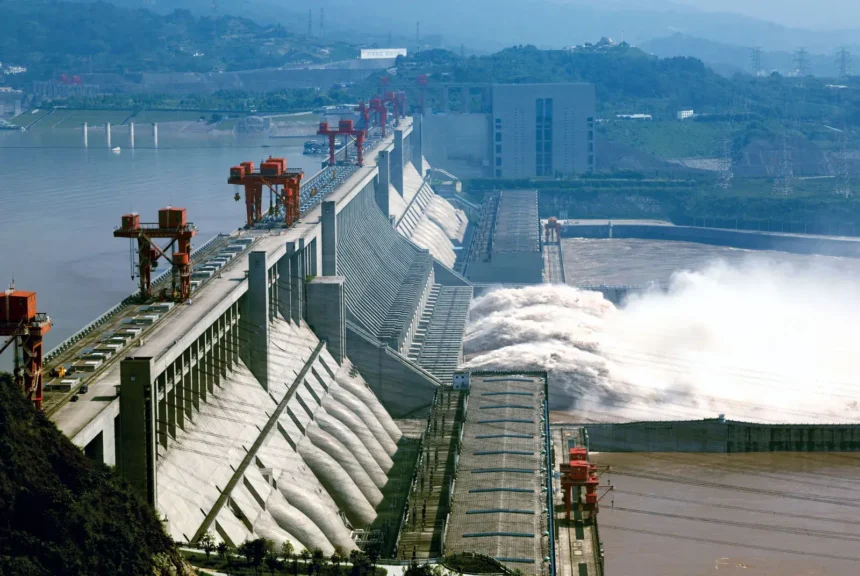Bangladesh Water Crisis: What’s at Stake for India and Dhaka?
Hidden Dangers of China’s Mega Dam
Water is both a lifeline and a looming threat for Bangladesh, a country crisscrossed by over 700 rivers. The recent move by Bangladesh’s interim Chief Adviser Muhammad Yunus to seek China’s 50-year water management masterplan has stirred geopolitical waters, signaling Dhaka’s attempt to balance its ties with both Beijing and New Delhi. But at the heart of this engagement lies a critical concern—China’s ambitious Yarlung Zangbo mega dam and its potential impact on downstream nations, particularly Bangladesh and India.
China’s Mega Dam: A Ticking Time Bomb?
The Brahmaputra, as the river is known in India, and the Jamuna in Bangladesh, is a vital water source for millions. Disruptions in its flow due to China’s upstream interventions could result in severe ecological and hydrological consequences, including:
| Risk Factor | Description |
|---|---|
| Unpredictable Water Flows | Reduced downstream water supply could disrupt irrigation, fishing, and livelihoods. |
| Flood Risks | The controlled release of water could lead to sudden floods, threatening millions in Assam and Bangladesh. |
| Siltation Issues | Changes in river flow could lead to excessive silt deposition, affecting river navigation and increasing flood risks. |
| Hydroelectric Conflicts | India has long-term plans for hydroelectric projects in Arunachal Pradesh, which may be jeopardized by China’s upstream control. |
Yunus’s Call for Transparency: A Strategic Move?
These concerns are not unfounded. Experts have identified several risks associated with China’s mega dam, which could have far-reaching consequences for Bangladesh and India. Here’s a closer look at the key challenges:
| Key Points | Details |
|---|---|
| Praise for China | Yunus praised China’s water management system and urged Beijing to share its expertise. |
| India’s Concerns | He echoed India’s concerns about rapid population growth and unchecked land encroachment along riversides worsening water issues. |
| Bangladesh’s Role | Yunus positioned Bangladesh as a mediator between India and China on water security. |
However, Yunus didn’t stop at merely requesting China’s expertise. He also extended an invitation for Chinese investment in the Teesta River water management project—a move that could strain Dhaka’s ties with New Delhi, given that this project was initially allocated to India during Sheikh Hasina’s tenure.
India’s Response: Strategic Patience or Tactical Caution?
India has consistently expressed concerns about China’s mega-dam projects on transboundary rivers. External Affairs Ministry spokesperson Randhir Jaiswal reiterated that India has “established rights” over the Brahmaputra’s waters and has repeatedly urged China to adopt a transparent, consultative approach with lower riparian states.
Despite India’s reservations, it has opted for a strategy of “strategic patience,” monitoring developments while maintaining diplomatic engagement with Bangladesh. However, Yunus’s recent moves—particularly his outreach to China—have created new uncertainties.
The Bangladesh-China Equation: Growing Dependence?
China has long been expanding its influence in South Asia through infrastructure projects, and Bangladesh is no exception. From the Padma Bridge to deep-sea ports, China has invested billions in Bangladesh. Yunus’s invitation to China for the Teesta River project suggests a further deepening of ties.
However, this growing dependence on China comes with risks. While Beijing’s investment may offer short-term economic benefits, it could also lead to long-term strategic leverage over Bangladesh, potentially complicating its relationship with India.
What’s Next for Bangladesh?
With the BIMSTEC Summit in Bangkok on the horizon, speculation is rife about a possible bilateral meeting between Yunus and Indian Prime Minister Narendra Modi. While Bangladesh has expressed interest in such a meeting, India has yet to confirm.
Meanwhile, Bangladesh must tread carefully. Striking a balance between its two powerful neighbors is no easy feat, especially on an issue as sensitive as water security. While Yunus’s call for transparency from China is a rational approach, his overtures to Beijing on critical infrastructure projects might not sit well with New Delhi.
Final Thoughts: Can Bangladesh Navigate These Waters?
Bangladesh’s future water security hinges on careful diplomacy. As China moves ahead with its mega-dam, Dhaka must ensure its interests are safeguarded while maintaining strong ties with India. Water management is no longer just an environmental or economic issue—it is a geopolitical one.
As this high-stakes water game unfolds, one question remains: Can Bangladesh successfully navigate these turbulent waters without getting caught in the crosscurrents of India-China rivalry?
Stay updated on global geopolitics and water security. Follow us for more insights!
Most read: https://tnheadlines24.com/bangladesh-ignored-by-india/
#BangladeshWaterCrisis #ChinaMegaDam #WaterSecurity #BrahmaputraRiver #TransboundaryWater #HydropowerImpact #IndiaBangladeshRelations #EnvironmentalRisk #FloodManagement #Geopolitics
Disclaimer: The information presented in this article is for informational purposes only. While every effort has been made to ensure accuracy, TN HEADLINES24 is not responsible for any errors, omissions, or consequences arising from the use of this content. Readers are advised to verify facts independently before making any decisions based on the information provided.








